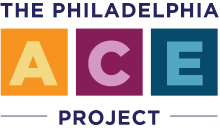Abstract
Adverse Childhood Experiences (ACEs), which include family dysfunction and community-level stressors, negatively impact the health and well being of children throughout the life course. While several studies have examined the impact of these childhood exposures amongst racially and socially diverse populations, the contribution of ACEs in the persistence of socioeconomic disparities in health is poorly understood. To determine the association between ACEs and health outcomes amongst a sample of adults living in Philadelphia and examine the moderating effect of Socioeconomic Status (SES) on this association, we conducted a cross-sectional survey of 1,784 Philadelphia adults, ages 18 and older, using random digit dialing methodology to assess Conventional ACEs (experiences related to family dysfunction), Expanded ACEs (community-level stressors), and health outcomes. Using weighted, multivariable logistic regression analyses along with SES stratified models, we examined the relationship between ACEs and health outcomes as well as the modifying effect of current SES. High Conventional ACE scores were significantly associated with health risk behaviors, physical and mental illness, while elevated Expanded ACE scores were associated only with substance abuse history and sexually transmitted infections. ACEs did have some differential impacts on health outcomes based on SES. Given the robust impact of Conventional ACEs on health, our results support prior research highlighting the primacy of family relationships on a child's life course trajectory and the importance of interventions designed to support families. Our findings related to the modifying effect of SES may provide additional insight into the complex relationship between poverty and childhood adversity.
Authors: Roy Wade, Peter F Cronholm, Joel A Fein, Christine M Forke, Martha B Davis, Mary Harkins-Schwarz, Lee M Pachter, Megan H Bair-Merritt
